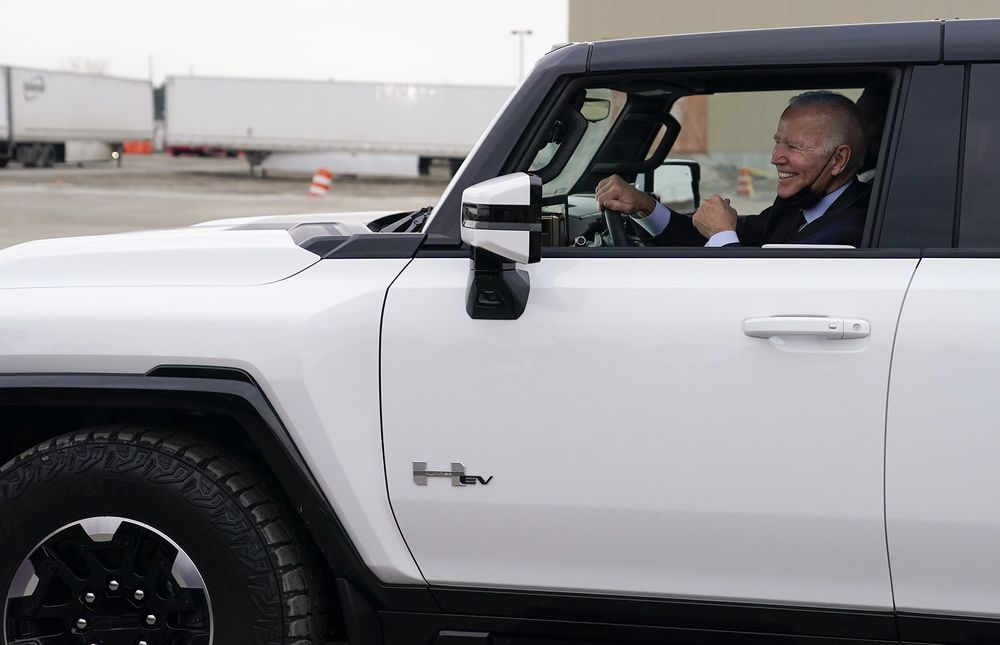In a letter dated November 28th, 2023, a consortium of 3,882 U.S. car dealers reached out to President Biden, expressing their concerns regarding the stringent requirements for electric vehicle (EV) sales mandated by his administration. While the dealers acknowledged the appeal of battery electric vehicles (BEVs) for many consumers, they asserted that the current demand does not align with the influx of BEVs arriving at their dealerships.
The primary concerns outlined in the letter revolved around charging infrastructure limitations, particularly for customers without home charging options who rely on public networks. The dealers argued that these regulations are unrealistic given current and projected customer demand. Additionally, concerns were raised about the perceived unaffordability of BEVs, exacerbated by issues such as poor weather affecting range and practical challenges for customers who need to tow.
While the letter addresses genuine challenges faced by both dealers and consumers, there is a suggestion that other factors may be at play. The dealers, positioning themselves as small businesses, were highlighted in a study by the National Bureau of Economic Research as part of the top one percent of the “blue-collar rich” category. The study revealed that a significant portion of car dealerships had owners earning over $1.5 million annually in 2019.
Furthermore, the dealers’ significant investments in lobbying efforts, directed at influencing regulations and advocating against direct sales, underscore their resistance to competition. Criticism has been directed at dealer markups, which, according to a separate study, accounted for 35-60% of inflation related to car prices across the United States. The suggestion is made that dealers could potentially address the affordability concerns they raised by revisiting their pricing strategies.
You can read the letter in its entirety below:
A Letter to the President
Dear Mr. President,
We are auto dealers from across the country who collectively sell every major brand in the U.S. We are small businesses employing thousands of Americans. We are deeply committed to the customers we serve and the communities where we operate, which is why we are asking you to slow down your proposed regulations mandating battery electric vehicle (BEV) production and distribution.
Your Administration has proposed regulations that would essentially mandate a dramatic shift to battery electric vehicles (BEVs), increasing year after year until 2032, when two out of every three vehicles sold in America would have to be battery electric.
Currently, there are many excellent battery electric vehicles available for consumers to purchase. These vehicles are ideal for many people, and we believe their appeal will grow over time. The reality, however, is that electric vehicle demand today is not keeping up with the large influx of BEVs arriving at our dealerships prompted by the current regulations. BEVs are stacking up on our lots.
Last year, there was a lot of hope and hype about EVs. Early adopters formed an initial line and were ready to buy these vehicles as soon as we had them to sell. But that enthusiasm has stalled. Today, the supply of unsold BEVs is surging, as they are not selling nearly as fast as they are arriving at our dealerships — even with deep price cuts, manufacturer incentives, and generous government incentives.
While the goals of the regulations are admirable, they require consumer acceptance to become a reality. With each passing day, it becomes more apparent that this attempted electric vehicle mandate is unrealistic based on current and forecasted customer demand. Already, electric vehicles are stacking up on our lots which is our best indicator of customer demand in the marketplace.
Mr. President, no government agency, no think tank, and no polling firm knows more about the automobile customer than us. We talk to customers every day. As retail automotive dealerships, we are agnostic as to what we sell. Our business is to provide customers with vehicles that meet the needs of their budgets and lifestyles.
Some customers are in the market for electric vehicles, and we are thrilled to sell them. But the majority of customers are simply not ready to make the change. They are concerned about BEVs being unaffordable. Many do not have garages for home charging or easy access to public charging stations. Customers are also concerned about the loss of driving range in cold or hot weather. Some have long daily commutes and don’t have the extra time to charge the battery. Truck buyers are especially put off by the dramatic loss of range when towing. Today’s current technology is not adequate to support the needs of the majority of our consumers.
Many of these challenges can and will be addressed by our manufacturers, but many of these challenges are outside of their control. Reliable charging networks, electric grid stability, sourcing of materials, and many other issues need time to resolve. And finally, many people just want to make their own choice about what vehicle is right for them.
Mr. President, it is time to tap the brakes on the unrealistic government electric vehicle mandate. Allow time for the battery technology to advance. Allow time to make BEVs more affordable. Allow time to develop domestic sources for the minerals to make batteries. Allow time for the charging infrastructure to be built and prove reliable. And most of all, allow time for the American consumer to get comfortable with the technology and make the choice to buy an electric vehicle.
Sincerely,
Supporting Dealerships

